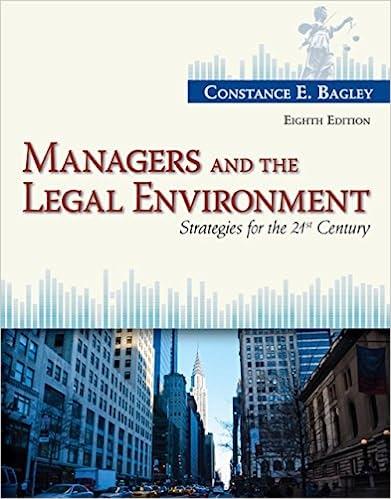The Digital Millennium Copyright Act (DMCA) includes a safe harbor provision under which a service provider is
Question:
The Digital Millennium Copyright Act (DMCA) includes a "safe harbor" provision under which a service provider is granted immunity from copyright infringement "by reason of the storage [of infringing content] at the direction of a user." To be eligible for this safe harbor exception, the provider must (1) have no "actual knowledge" of infringement; (2) not be aware of "facts or circumstances from which infringing activity is apparent"; (3) on gaining knowledge of the infringing content, act "expeditiously to remove" the infringing material; and (4) "not receive a financial benefit directly attributable to the infringing activity" if the service provider has the ability to control such activity. The service provider must also have a designated agent to receive notifications of claimed infringement, but it is not obligated to monitor users' activity or "affirmatively [seek] facts indicating infringing activity." YouTube hosts a website where users can upload video files and view videos posted by others. Viacom, along with several other content providers, sued YouTube for copyright-infringing content uploaded by users to its website.
On which party does the DMCA place the burden of identifying infringement-the service provider or the copyright owner? What details of claimed infringement must be provided? If YouTube has the ability to monitor users to identify infringement, should it be required to do so? If YouTube does not affirmatively monitor users, is it "willfully blind" to infringement? Will that cause it to lose protection under the safe harbor provision? What types of activities would YouTube be required to perform for it to have the "right and ability to control" infringing material on its site? If YouTube is notified of infringing video files, should it be required to seek out all other files infringing the same content? Should it matter that infringing content as a whole brings more traffic to YouTube than noninfringing content does? Is it ethical for YouTube to keep content on its site that it knows is infringing? If you were the head of the Motion Picture Association of America or a major television network, what legislative changes might you propose to protect your intellectual property? If you were YouTube's CEO, how would you respond?
Step by Step Answer:

Managers And The Legal Environment Strategies For The 21st Century
ISBN: 9781285860374
8th Edition
Authors: Constance E. Bagley





